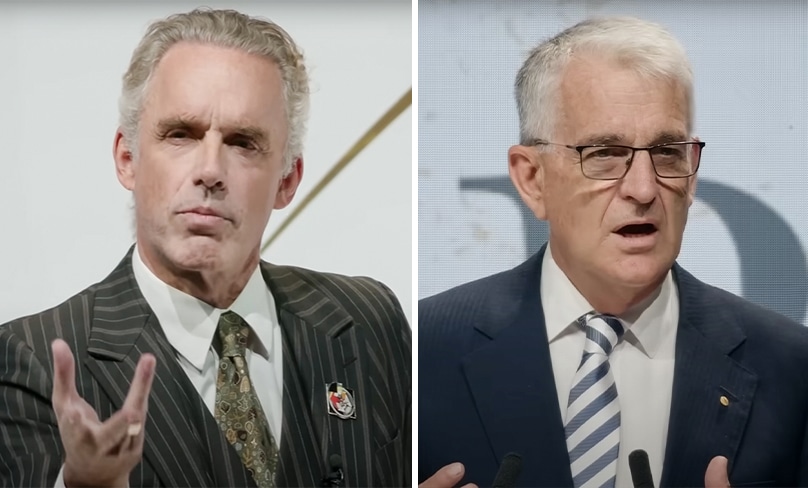
“We shall overcome because the arc of the moral universe is long, it bends toward justice,” Martin Luther King Jr once famously said.
It was from this quotation that the Alliance for Responsible Citizenship, or ARC, took its inspiration. I was privileged to be one of 150 Australians invited to attend its inaugural conference in London earlier this month.
Attendees were greeted on the conference’s opening day by a live orchestra, banners featuring quotes such as, “A hero is somebody who understands the responsibility that comes with his freedom” and a program that outlined the “better story of strength, abundance and hope” ARC hopes to tell. This story, the booklet described, “is founded on transcendent, foundational principles [that] each person’s life is of infinite value; life offers both meaning and purpose; the truth exists and is knowable; and we all have something to contribute.”
The rousing welcome from Baroness Philippa Stroud, a member of the UK House of Lords and—along with Professor Jordan Peterson and former Deputy Prime Minister John Anderson – one of the key founders of ARC, made it clear that ARC was not going to be like any other conference.
“This is a civilisational moment. There is a lot at stake,” she said in an extraordinary oration that set the scene for the three days that would follow.
“There was once a day in western nations when we took seriously the extraordinary value of every human being; the fact that each person was made in the image of the divine… But as we have become separated from the source of why man is infinitely valuable, we have seen an unravelling of the pillars upon which our society is built and a collapsing of the way in which we interact with one another…
“What is required when this happens, and society has lost its way, is for leaders to arise who have not forgotten the discarded legacy and who love it with all their hearts. So, our vision for ARC is to build a community of people of courage and strength who will quite literally build the foundations of our nations.”
Stroud’s opening was followed by Peterson, who told us that “we have the responsibility to face an uncertain future with faith and courage … if we each brought to the world what we could bring to the world and if we all cooperated in the manner that bringing forth would enable, that we could still wreak untold miracles… could we not have a future of unlimited abundance and opportunity for everyone?
“Is it not possible that we could aim at that? And it is only naïve to presume that that might be possible? Or is it actually a hallmark of courage and faith to say that that is what we could have if we chose to do it?”
While it is possible to critique these words as demonstrating some type of a messianic complex, I can tell you that it didn’t feel that way in the room. Indeed, the exhortations from Stroud and Peterson were not much different to St Catherine of Siena’s famed: “Be who God meant you to be and you will set the world on fire,” packaged for an audience of different faiths and none.
The conference focused on four key themes: the better story; strengthening of our social fabric; the entrepreneurial power of business; and environmental stewardship and energy transition. Keynotes and panels on each of these themes were punctuated by beauty: live theatrical and orchestral pieces, spoken-word performances and displays of artwork.
With a clear focus on the common good and the betterment of all, ARC was hardly the “right-wing loser fest,” “reheated Reaganism,” or “a key event in the climate crisis denial movement” that it had been dubbed by some media outlets.
Some may have expected or even hoped that ARC attendees would come up with a plan to turn the cultural tide, to spend the three days brainstorming and to emerge with a plan, but that wasn’t what happened. Rather, the conference was about inspiration and encouragement, fraternity and networking than anything. As the program said, “We want to expose you to a broad range of ideas, in a beautiful setting, with people you will want to know for the rest of your life. It is in friendship that people find the strength to stand against the tide of cancel culture.”
It was a moment of respite for those who are usually on the front lines (or on the stage) who were invited to down tools and receive. Providing such a seamless event meant that the indefatigable organisers and their staff and volunteers worked incredibly hard in the lead up and during the conference, and I am very grateful to them.
As Peterson put it on the final day, the conference was more of a “reminder”—a reminder of who we are, of the gifts that we have been given and of our responsibility to use them to “tilt the world towards heaven and away from hell.”
The religiously-laden rhetoric can make ARC seem like a religious movement (or even a replacement for religion for some who, like Peterson, teeter on the edge of professing a religious faith). But it’s not and should not be treated as one. It’s not just a conference either, intended only for the 1500 of us who were privileged to attend. It’s a movement, whose membership will be broadened to include anyone who wants to see what happens when people of courage and conviction, who understand the indivisibility of freedom and responsibility and who want to use it for good are brought together in an intentional manner. And for that reason alone, I think it’s worth a try.
